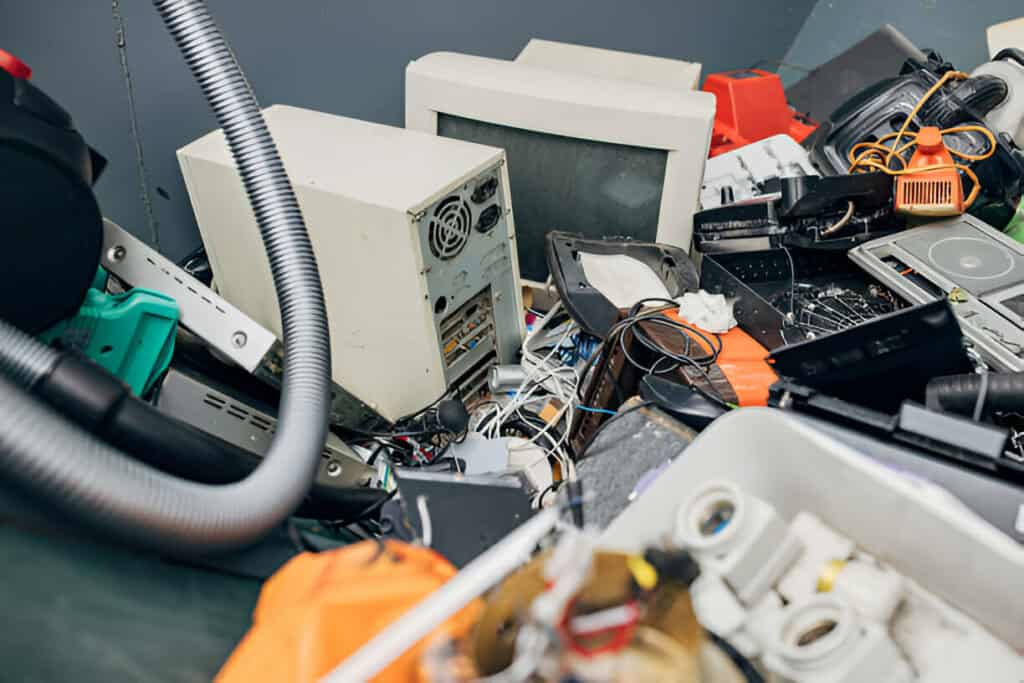As electronic devices become obsolete or out-of-order, proper disposal becomes a crucial aspect of managing electronic waste (e-waste). This article outlines the best practices and solutions for disposing of out-of-order electronics, highlighting the importance of responsible e-waste management, the various methods available, and the role of consumers and manufacturers in ensuring a sustainable future.
The Importance of Responsible E-Waste Management
Electronic items that are thrown away, including computers, televisions, smartphones, and home appliances, are referred to as e-waste. These devices often contain hazardous materials like lead, mercury, and cadmium, which can pose serious environmental and health risks if not disposed of properly. Improper disposal methods, such as landfilling or incineration, can lead to soil and water contamination, air pollution, and adverse health effects on local communities.
Moreover, ewaste recycling companies in UAE also contain valuable materials like gold, silver, copper, and rare earth elements. Proper recycling and recovery of these materials can reduce the need for mining new resources, thus conserving natural resources and reducing environmental impact. Therefore, responsible e-waste management is essential for mitigating environmental hazards, promoting public health, and conserving valuable resources.
Best Practices for Disposing of Out-of-Order Electronics
- Assess and Repair: Before considering disposal, evaluate whether the device can be repaired or refurbished. Many electronic devices can be fixed with minor repairs or upgrades, extending their useful life and reducing e-waste generation. Check with authorized service centers or certified technicians to determine the feasibility of repairs.
- Donate or Sell: If the device is still functional or can be easily repaired, consider donating it to charitable organizations, schools, or community centers. Many organizations accept used electronics to support their programs or provide technology to those in need through ewaste recycling facility in UAE. Alternatively, selling the device through online marketplaces or trade-in programs can give it a second life and reduce the overall e-waste footprint.
- Manufacturer Take-Back Programs: Many electronics manufacturers offer take-back programs or recycling services for their products. These programs ensure that end-of-life devices are collected and recycled responsibly. Check with the device manufacturer or retailer for available take-back options and follow their guidelines for returning the device.
- Certified E-Waste Recyclers: Utilize certified e-waste recyclers to ensure that electronic devices are recycled in an environmentally friendly manner. Certification programs like e-Stewards and R2 (Responsible Recycling) set stringent standards for e-waste recycling practices, ensuring that hazardous materials are managed safely and valuable materials are recovered efficiently. Locate a certified recycler in your area and drop off your out-of-order electronics for proper disposal.
- Community Recycling Events: Many local governments and organizations host community recycling events to collect e-waste. These events provide a convenient way for residents to dispose of their electronic devices responsibly. Stay informed about upcoming events in your community and take advantage of these opportunities to recycle your e-waste at ewaste recycling facility Dubai.
- Data Security: Before disposing of any electronic device, ensure that all personal data is securely erased. Many devices store sensitive information that could be compromised if not properly deleted. Use data-wiping software or factory reset options to remove all personal data from the device. For devices with removable storage media, such as hard drives or memory cards, consider physically destroying the storage components to prevent data theft.
The Role of Consumers and Manufacturers
Both consumers and manufacturers play pivotal roles in ensuring the responsible disposal of out-of-order electronics.
Consumers:
- Awareness and Education: Consumers should educate themselves about the environmental impact of e-waste and the available disposal options. Understanding the importance of responsible e-waste management can encourage more sustainable behaviors.
- Responsible Purchasing: Opt for electronics from manufacturers that prioritize sustainability and offer robust take-back or recycling programs. Look for products with eco-friendly certifications or those made from recycled materials.
- Proper Disposal: Follow the best practices outlined above to ensure that electronic devices are disposed of responsibly. Encourage friends and family to do the same by sharing information and resources.
Manufacturers:
- Design for Sustainability: Incorporate eco-friendly design principles to create products that are easier to repair, upgrade, and recycle with electronic waste management in Dubai. Use materials that are less hazardous and more recyclable.
- Take-Back Programs: Implement and promote take-back or recycling programs to ensure that end-of-life devices are managed responsibly. Make these programs easily accessible to consumers.
- Transparency and Reporting: Provide transparent information about the environmental impact of products and recycling practices. Regularly report on the progress of sustainability initiatives and set clear goals for reducing e-waste.
In Conclusion
The growing volume of e-waste poses significant environmental and health challenges. By following best practices for disposing of out-of-order electronics and fostering a culture of responsible e-waste management, we can mitigate these challenges and contribute to a more sustainable future. Consumers and manufacturers alike must take proactive steps to ensure that electronic devices are managed responsibly throughout their lifecycle with IT asset disposal in UAE. Through repair, reuse, recycling, and sustainable design, we can reduce the environmental impact of e-waste and conserve valuable resources for future generations.

